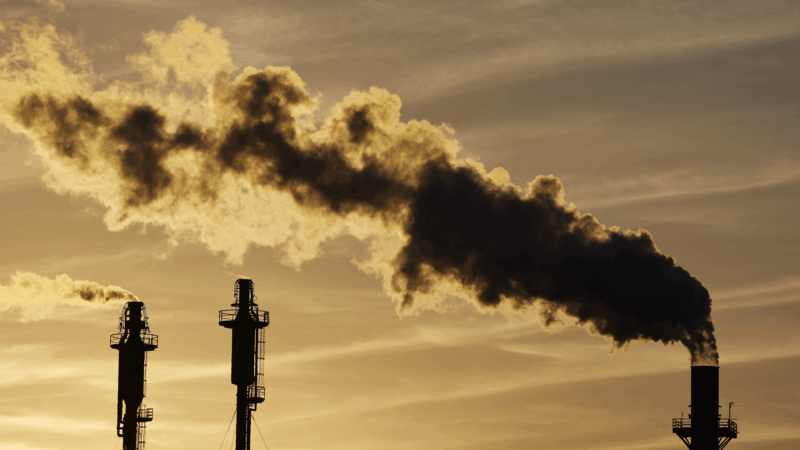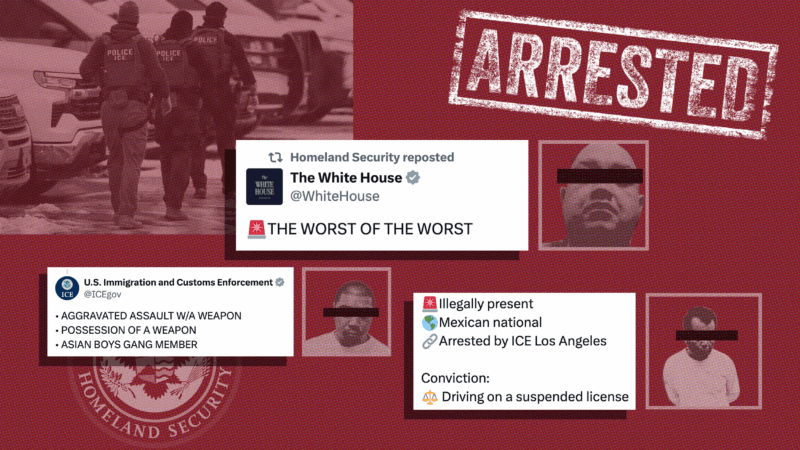Oil companies face a wrongful death suit tied to climate change
A lawsuit filed in a Washington state court claims oil companies are responsible for the death of a woman in Seattle during a record-breaking heat wave several years ago.
The case marks the first time oil companies have been sued over the death of a person in a “climate disaster,” according to the Center for Climate Integrity, an advocacy group.
Julie Leon, 65, was found unresponsive in her car on June 28, 2021 — the hottest day in Seattle’s history. The temperature in the city that day peaked at 108 degrees Fahrenheit. By the time Leon died of hyperthermia, her internal temperature had risen to 110 degrees Fahrenheit, according to the lawsuit filed Thursday in King County Superior Court.
The suit names six oil companies, including ExxonMobil, BP and Chevron, that have allegedly known for decades that burning fossil fuels alters the Earth’s atmosphere, resulting in more extreme weather and the “foreseeable loss of human life.” But rather than warn the public, the suit says the oil companies deceived consumers about the risks.
“Defendants have known for all of Julie’s life that their affirmative misrepresentations and omissions would claim lives,” the lawsuit says. “Julie is a victim of Defendants’ conduct.”
In a rapid attribution study released days after the event, a team of scientists said the 2021 heatwave in the Pacific Northwest would have been “virtually impossible without human-caused climate change.”
Representatives of Shell, ConocoPhillips, BP and Phillips 66 declined to comment on the wrongful death lawsuit. A spokesperson for ExxonMobil said a comment from the company wasn’t immediately available. Chevron didn’t immediately respond to a message seeking comment.
Julie Leon’s daughter, Misti Leon, who filed the wrongful death lawsuit in Washington state, wants the oil companies to pay damages in amounts that would be determined at trial. Misti Leon is also trying to force the oil companies to conduct a public education campaign to correct “decades of misinformation.”
Fossil fuel companies already face dozens of other climate lawsuits filed by states and localities for allegedly misleading the public for decades about the dangers of burning fossil fuels, the primary cause of climate change. Those lawsuits seek money to help communities cope with the risks and damages from global warming, including more extreme storms, floods and heat waves. The American Petroleum Institute, an industry group, has said repeatedly that the lawsuits are meritless and that climate change is an issue that should be dealt with by Congress, not the courts.
Those kinds of lawsuits have had mixed results. A Pennsylvania judge recently dismissed a climate lawsuit that Bucks County filed against several oil companies. Court of Common Pleas Judge Stephen Corr said the lawsuit was beyond the scope of state law. Since it was primarily about greenhouse gas emissions, he said it was a matter for the federal government to deal with under the Clean Air Act. Judge Corr noted that other courts have dismissed similar lawsuits by cities and states, including New Jersey and Baltimore.
Chevron’s lawyer in the Pennsylvania case, Ted Boutrous, told WHYY that climate change is a “policy issue that needs statewide, nationwide and global cooperation to resolve. These state lawsuits just don’t really do anything other than clog the courts.”
Other cases, though, are moving forward. In January, the Supreme Court rejected an effort by oil and gas companies to block a climate lawsuit filed by Honolulu, and in March the justices turned down a request by Republican attorneys general to try to stop climate lawsuits filed by states including California, Connecticut, Minnesota and Rhode Island. The American Petroleum Institute said in statements to NPR at the time that it was disappointed by the Supreme Court’s decisions, saying the lawsuits are a “distraction” and “waste of taxpayer resources.”
However, the issue has caught the attention of the Trump administration. On May 1, the Justice Department sued Michigan and Hawaii to try to stop those states from filing climate lawsuits against the fossil fuel industry.
Douglas Kysar, faculty director of the Law, Environment and Animals Program at Yale Law School, said Leon’s lawsuit stands out from other climate cases that are working their way through the courts.
“The advantage of this lawsuit is that it puts an individual human face on the massive harmful consequences of collective climate inaction,” Kysar said in an email to NPR. “Not only that, the complaint tells a story of industry betrayal of public trust through the eyes of a particular person.”
Parents, are you sure your kid’s car seat is installed right? Here’s how to know
In this visual guide, certified car seat experts walk through common installation mistakes and how to fix them. Learn what a secure car seat base and a tightly fastened tether look like and more.
Trump announces ‘major combat operations’ in Iran
Israel and the U.S. have launched strikes against Iran, with explosions reported in Tehran and air raid sirens sounding across Israel.
Trump says he is ‘not happy’ with the Iran nuclear talks but indicates he’ll give them more time
U.S. President Donald Trump said Friday he's "not happy" with the latest talks over Iran's nuclear program but indicated he would give negotiators more time to reach a deal to avert another war in the Middle East.
Bill Clinton says he ‘did nothing wrong’ with Epstein as he faced grilling over their relationship
Former President Bill Clinton told members of Congress on Friday that he "did nothing wrong" in his relationship with Jeffrey Epstein and saw no signs of Epstein's sexual abuse as he faced hours of grilling from lawmakers over his connections to the disgraced financier from more than two decades ago.
How the federal government is painting immigrants as criminals on social media
Experts say this kind of media campaign is unprecedented and paints a distorted picture of immigrants and crime
Pentagon puts Scouts ‘on notice’ over DEI and girl-centered policies
After threatening to sever ties with the organization formerly known as the Boy Scouts, Defense Secretary Hegseth announced a 6-month reprieve








